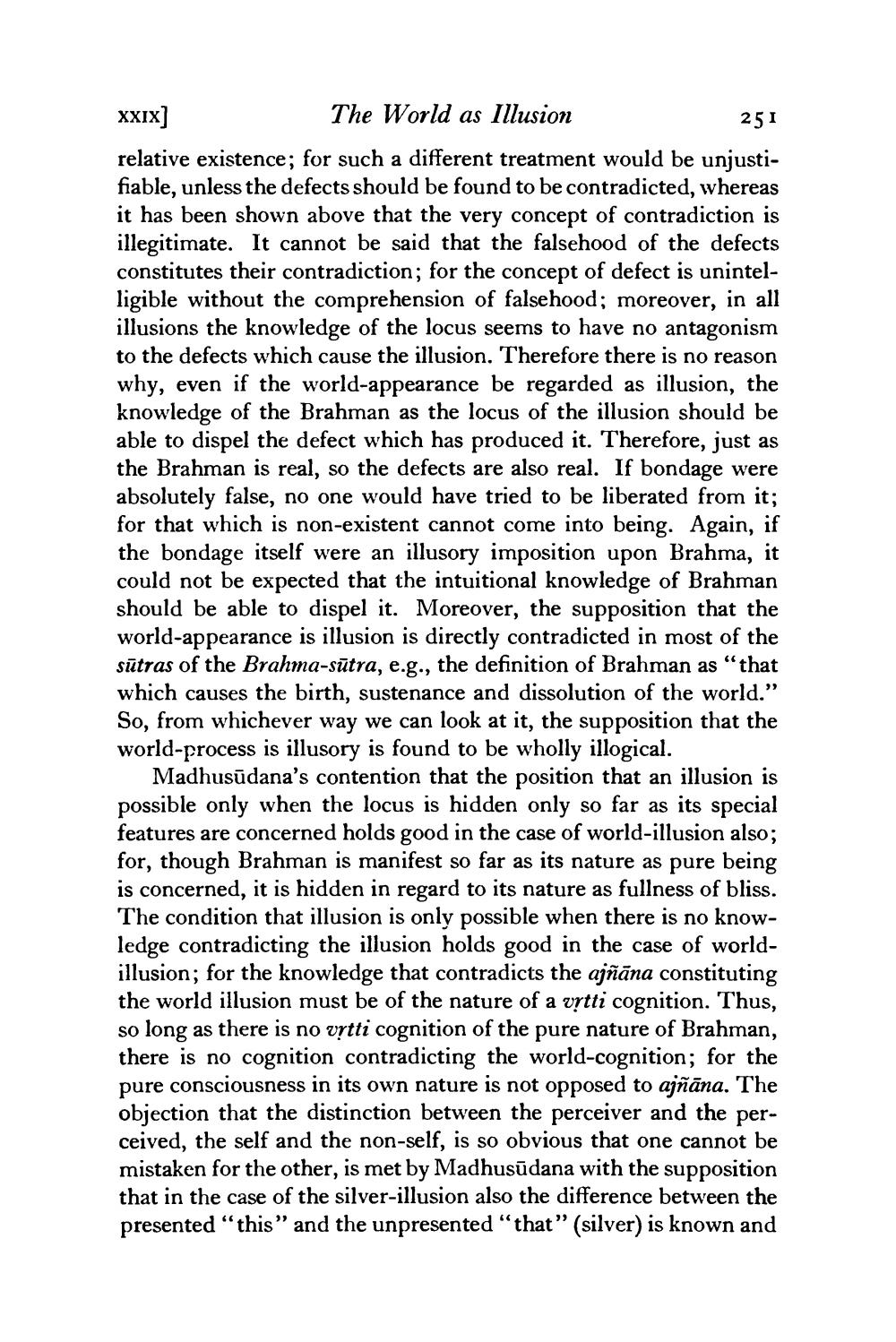________________
xxix] The World as Illusion
251 relative existence; for such a different treatment would be unjustifiable, unless the defects should be found to be contradicted, whereas it has been shown above that the very concept of contradiction is illegitimate. It cannot be said that the falsehood of the defects constitutes their contradiction; for the concept of defect is unintelligible without the comprehension of falsehood; moreover, in all illusions the knowledge of the locus seems to have no antagonism to the defects which cause the illusion. Therefore there is no reason why, even if the world-appearance be regarded as illusion, the knowledge of the Brahman as the locus of the illusion should be able to dispel the defect which has produced it. Therefore, just as the Brahman is real, so the defects are also real. If bondage were absolutely false, no one would have tried to be liberated from it; for that which is non-existent cannot come into being. Again, if the bondage itself were an illusory imposition upon Brahma, it could not be expected that the intuitional knowledge of Brahman should be able to dispel it. Moreover, the supposition that the world-appearance is illusion is directly contradicted in most of the sūtras of the Brahma-sūtra, e.g., the definition of Brahman as “that which causes the birth, sustenance and dissolution of the world." So, from whichever way we can look at it, the supposition that the world-process is illusory is found to be wholly illogical.
Madhusūdana's contention that the position that an illusion is possible only when the locus is hidden only so far as its special features are concerned holds good in the case of world-illusion also; for, though Brahman is manifest so far as its nature as pure being is concerned, it is hidden in regard to its nature as fullness of bliss. The condition that illusion is only possible when there is no knowledge contradicting the illusion holds good in the case of worldillusion; for the knowledge that contradicts the ajñāna constituting the world illusion must be of the nature of a vytti cognition. Thus, so long as there is no vrtti cognition of the pure nature of Brahman there is no cognition contradicting the world-cognition; for the
nsciousness in its own nature is not opposed to ajñāna. The objection that the distinction between the perceiver and the perceived, the self and the non-self, is so obvious that one cannot be mistaken for the other, is met by Madhusūdana with the supposition that in the case of the silver-illusion also the difference between the presented “this" and the unpresented “that" (silver) is known and




